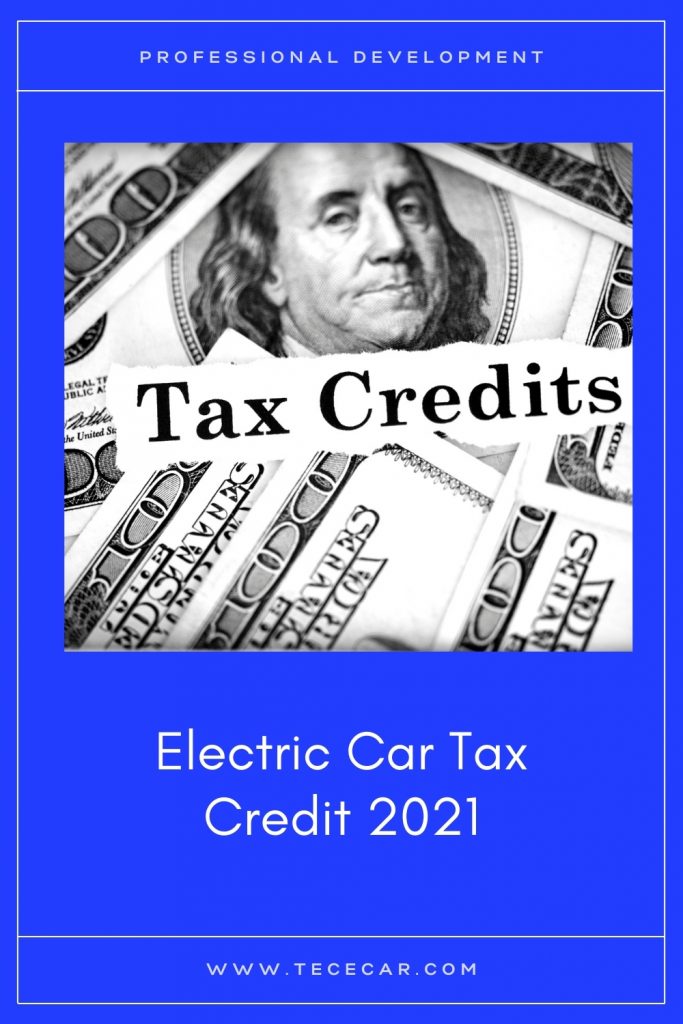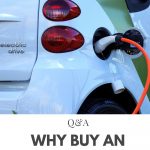Electric Car Tax Credit 2021


Topic: Electric Car Tax Credit 2021
You are not alone. To clarify the rules, here’s our guide to E.V. and plug-in electric vehicle tax credits. In addition, it answers a few significant questions you might have about those incentives.
How much is the credit?
You’ll often hear a credit is worth”up to” a certain amount. “As much as” is your critical modifier. The national incentive is usually referred to as a level $7,500 charge, but it’s just worth $7,500 to a person whose tax bill at the end of the year is $7,500 or more. Let’s say you purchase a Nissan Leaf or other eligible E.V., and you spend $5,000 in income tax for a particular year. That is all of the tax charges will be. Uncle Sam isn’t writing a refund check for another $2,500. And an unused section of the credit can not be applied against the following year’s taxes.
If you are leasing the E.V., the tax charge goes to the manufacturer offering the lease, not you. The carmaker will probably factor the credit into the rental price to decrease your monthly payment, but it isn’t mandatory.
The credits are also based on the electric vehicle’s battery size. For some versions, the credit amount can fall below $7,500. As an example, the Toyota Prius Prime, a plug-in hybrid hatchback, just qualifies for a 4,502 tax credit.
How does the electric car tax credit work?
What vehicles now qualify for the national credit? (as of April 2021)
| Electric vehicles | Federal tax credit |
| Audi e-tron SUV | $7,500 |
| Audi e-tron Sportback | $7,500 |
| BMW i3 | $7,500 |
| Ford Mustang Mach-E | $7,500 |
| Hyundai Ioniq Electric | $7,500 |
| Hyundai Kona Electric | $7,500 |
| Jaguar I-Pace | $7,500 |
| Kia Niro EV | $7,500 |
| Mini Hardtop Electric | $7,500 |
| Nissan Leaf | $7,500 |
| Polestar 2 | $7,500 |
| Porsche Taycan | $7,500 |
| All new Tesla models | No longer eligible for federal EV tax credits |
| Volkswagen ID.4 | $7,500 |
| Volvo XC40 Recharge | $7,500 |
| Plug-in hybrids | Federal tax credit |
| Audi A8L 60 TFSI e | $6,712 |
| Audi Q5 55 TFSI e | $6,712 |
| Bentley Bentayga Hybrid | $7,500 |
| BMW i3 with range extender | $7,500 |
| BMW X3 xDrive30e | $5,836 |
| BMW X5 xDrive45e | $7,500 |
| BMW 3 Series 330e | $5,836 |
| BMW 5 Series 530e | $5,836 |
| BMW 7 Series 745e xDrive | $5,836 |
| Chrysler Pacifica Hybrid | $7,500 |
| Ford Escape Plug-In Hybrid | $6,843 |
| Ford Fusion Plug-In Hybrid | $6,843 |
| Honda Clarity Plug-In Hybrid | $7,500 |
| Hyundai Ioniq Plug-In Hybrid | $4,543 |
| Jeep Wrangler 4xe | $7,500 |
| Kia Niro Plug-In Hybrid | $4,543 |
| Land Rover Range Rover Hybrid | $6,295 |
| Land Rover Range Rover Sport Hybrid | $6,295 |
| Lincoln Aviator Hybrid | $6,534 |
| Lincoln Corsair Hybrid | $6,843 |
| Mini Countryman Hybrid | $5,002 |
| Mitsubishi Outlander PHEV | $6,587 |
| Polestar 1 | $7,500 |
| Porsche Cayenne Hybrid | $6,712 |
| Porsche Panamera Hybrid | $6,712 |
| Subaru Crosstrek Hybrid | $4,502 |
| Toyota Prius Prime | $4,502 |
| Toyota RAV4 Prime | $7,500 |
| Volvo S60 Hybrid | $5,419 |
| Volvo S90 Hybrid | $5,419 |
| Volvo V60 | $5,419 |
| Volvo XC60 Hybrid | $5,419 |
| Volvo XC90 Hybrid | $5,419 |
Source: Edmund
Is there some fine print for E.V. incentives?
The principle restricts the federal tax credit to the original buyer of a qualified E.V. or plug-in hybrid. You should also know about a few other conditions:
- As noted before, if you are leasing a car, the credit stays with the maker supplying the rental because it is the true owner of the vehicle. In most cases, however, the tax charge has been factored into the rental cost, so the consumer benefits.
- The federal tax credit does not apply to an electric vehicle being bought to resell. That’s a gray area, however, and would be tough for governments to prove.
- The vehicle must primarily be utilized in the USA.
- Qualified manufacturers must build plug-in and battery-powered electric vehicles to be eligible for the full $7,500 credit.
- Plug-in hybrids and battery electric vehicles must also have battery packs rated for 4 kWh of electricity storage and capable of being recharged from an external source.
- The IRS says that manufacturers are not required to certify to the agency that vehicles meet the prerequisites to qualify for the various credits. Therefore, for vehicles not listed on the Department of Energy site or around the IRS listing of capable vehicles, a buyer can generally rely on the company’s representation that the car is qualified. That statement can be in writing or on the organization’s website. The same goes for electric bikes, plug-in and E.V. conversions, three-wheel E.V.s, and low-speed E.V.s.
- The IRS, of course, always reserves the right to deny a claim for a tax credit.
Do electric car tax credits run out?
Yes. The government is phasing out the electric vehicle tax credits as sales grow. The theory that the high initial cost of incorporating new technologies into a vehicle will come down as economies of scale improve with more sales. That is supposed to get rid of the need for subsidies. However, every manufacturer’s expiration date is different and just comes after an automaker sells 200,000 qualified vehicles. Tesla hit the milestone first in July 2018. As a result, there aren’t any national tax credits for Tesla now.
In the past quarter of 2018, G.M. became the next carmaker to sell 200,000 qualified plug-in vehicles. And like Tesla, all new electrical vehicles in G.M. no longer have the federal tax incentive.
Nissan is next in line for a charge phaseout, but Edmunds analysts state that unless earnings for the Leaf pick up significantly, it is unlikely Nissan will reach the brink in 2021. The rest of the makers are trailing far behind in plug-in auto sales.
Can electric vehicle tax credits be passed?
This query occasionally pops up: Who gets to claim the tax credit in the event of low-mileage automobiles that dealerships sell after having used them as demonstrators or loaner cars?
The solution is really simple: E.V. tax credits cannot be passed. Only the original registered owner of a qualified vehicle can claim the federal tax credit. Even if the initially registered owner did not apply for the credit for some reason, it could not be passed along to a subsequent buyer.
This information is useful because it can be quite a bargaining point in a used-car buy discussion. For example, it might turn out that a new model with a tax charge is a much better bargain than a used one if the federal tax credit program means the list price for your new model is reduced by around $7,500.
Are there tax credits from countries or other resources?
Yes. While the national tax credits for plug-in and natural gas vehicles get the most mention, there are dozens of regional and state incentives on plug-in vehicles and the ones that use alternative fuels. Many states have a dozen or more programs. Some credits arrive in the shape of exemptions from fees and inspections. Others are nonmonetary incentives like carpool lane access and free parking.
Retail buyers in many nations can get some cost relief in the form of tax credits, rebates, or reduced automobile taxes or registration fees for buying an experienced alternative-fuel or electric-drive car or truck.
For instance, in California, individuals who buy or lease a new electric car can get a $2,000 cash rebate. That is in addition to the federal tax-free, and it reduces the effective out-of-pocket cost of the automobile by near $10,000. However, plug-in hybrids are a little different. Because they have smaller batteries and burn gasoline components, such automobiles are eligible for only $1,000 rebates under California’s wash automobile lien program.
The twist in the USA, an advocacy group, has an interactive U.S. map that reveals present plug-in car incentives in each state. The U.S. Department of Energy also has an interactive graph of state incentives.
It’s a fantastic idea to make sure about available state and local incentives before you go shopping. Just because a country has a program doesn’t indicate it will continue forever. For example, California has altered its rebate program by accepting income levels under consideration.
How about fuel cell cars?
In California, for example, there’s a $4,500 country lien available, so consult your nation’s incentive website to be certain.
Is the EV Tax Credit Still Available?
Yes, the electric vehicle tax credit is available to some automakers, but not all. According to the EPA, the credit begins to decline for vehicles in the second quarter after the automaker sold 200,000 qualified plug-in electric vehicles. The tax credits for General Motors and Tesla, for example, have been eliminated entirely, and the electric vehicles they make are no longer eligible for the federal tax credit.
How does an electric vehicle tax credit work?
The federal incentive is only worth $ 7,500 to someone whose year-end tax bill is $ 7,500 or more. Let’s say you buy a Hyundai Kona EV or another qualifying vehicle, and you owe $ 5,000 in income taxes for that year. That’s the whole tax credit. The IRS will not issue you a refund check for the remaining $ 2,500. And an unused portion of the credit cannot be deducted from next year’s taxes. If you rent, the tax credit will go to the finance company, not you. The automaker will likely include the credit in the cost of the lease to lower your monthly payment, but it doesn’t have to.
Will there be a federal tax credit for electric cars in 2021?
A federal tax credit is available for most electric cars in 2021, up to $ 7,500. The exceptions are Tesla and General Motors, whose tax credits have been phased out. The tax credit is also available for fuel cell electric vehicles and plug-in hybrid electric vehicles, but the amount may vary depending on the size of the battery.
Does California have an electric vehicle tax credit?
California offers discounts, unlike tax credits, for qualifying vehicles. Discounts can reach $ 4,500 for fuel cell electric vehicles, $ 2,000 for battery electric vehicles and $ 1,000 for plug-in electric vehicles. There are income limits that can increase or eliminate reimbursement, depending on your household income. Be sure to do your research before submitting the refund forms.
Is there a tax credit for buying a Tesla in 2021?
No. Tesla has sold more than 200,000 qualified electric vehicles, and all of its federal tax credits have been eliminated. However, there are still state incentives to buy a Tesla, so check with your state government department of transportation.
Electric Car Tax Credit 2021 Video
People also ask:
Is there a tax credit for electric cars in 2021?
A federal tax credit is available for most electric cars in 2021, up to $ 7,500. The exceptions are Tesla and General Motors, whose tax credits have been phased out.
Is there a tax credit for buying a Tesla in 2021?
Bottom line: Tesla cars purchased after May 24, 2021, would be retroactively eligible for a $ 7,500 tax credit on 2021 tax returns. Tesla cars purchased after December 31, 2021, would be eligible for a tax credit of $ 10,000 (in most cases, see below) on 2022 tax returns.
Which electric cars are still eligible for the $7500 federal tax credit?
Both are currently eligible for a federal tax credit of $ 7,500. Other models eligible for a $ 7,500 break include the Nissan Leaf, Porsche Taycan models, MINI Cooper SE Hardtop, some BMW models, and plenty of Ford Mustang EVs.
Why are Tesla cars not eligible for tax credit?
Bottom line: Tesla was too popular. All models in the Tesla line, including the S, X, 3, and Roadster models, have exceeded the limit. For example, once Tesla sold 200,000 vehicles, regardless of model, the credit was phased out.
Does the government give you money for buying an electric car?
The federal government provides:
A substantial tax credit for new battery-electric vehicles and plug-in hybrids.
Ranging from $ 2,500 to $ 7,500.
- Depending on the electric vehicle’s battery capacity.
For example, if you buy an eligible electric vehicle for $ 7,500 but only owe $ 4,000 in taxes, you will receive a credit of $ 4,000.
Will Tesla Model Y Get Tax Credit?
If you’re wondering why Tesla or the recently announced GMC Hummer EV isn’t included, it’s because GM and Tesla vehicles no longer qualify for the federal tax credit.
Is the EV tax credit still available?
The current maximum tax credit is $ 7,500 with no maximum price and is currently eliminated for individual automakers once they reach 200,000 electric vehicles sold in total. General Motors (GM. N) and Tesla (TSLA. O) have reached the limit and are currently not eligible for the $ 7,500 tax credit.
Do you save money driving a Tesla?
First, the biggest savings: more expensive gasoline. With 100 miles using 34 kWh (about 100 MPG) and electricity costing an average of $ 0.12 / kWh, the annual cost to drive a 15,000-mile Tesla Model S is $ 612. Compare that to Toyota’s 30 MPG ( TM) Camry and an average gas cost of $ 2.40 per gallon.
How much does it cost to charge a Tesla at home per month?
It also shares valuable information on electricity rates and electric vehicle charging in general. After looking at the data in detail, Daniel reveals that it costs him about $ 1.76 per night to charge his Model Y at home, or about $ 53 per month ($ 642 per year).
What are the tax benefits of an electric car?
In an age where rising fuel costs can put financial pressure on many residential and commercial drivers, the lower cost of using an electric car is one of the main incentives to switch to electric fuel. The benefit of switching electricity means that home electric car users pay only 5% tax.
Is charging a Tesla cheaper than gas?
The Tesla Model X costs around $ 15.29 for a full charge, which comes down to around 4.5 cents per mile. The cost of operating an electric vehicle is significantly lower than that of a conventional gasoline-powered car, and it can be even cheaper when you charge your EV with solar panels.
Recommended Article:
How Long Does It Take To Charge A Tesla?
Electric Van That Could Use Solar Panels
Tesla Autopilot with Convenience Features
How to become electric car mechanic training?
How to charge an electric car at home?






[…] Does RAV4 Prime qualify for tax credit? […]
[…] Electric Car Tax Credit 2021 […]
[…] Electric Car Tax Credit 2021 […]
[…] you buy a solar energy system, you can take advantage of a 30 per cent federal tax credit. This lowers the cost of your home power plant, resulting in even more savings on the energy used […]